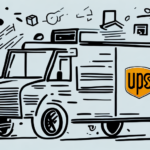Maximizing Your Declared Value with FedEx Shipping
Sending high-value shipments with FedEx can ensure the safety and security of your goods. However, it's not just about choosing the right shipping company; maximizing your declared value is equally crucial. This article provides comprehensive insights and tips on optimizing your declared value with FedEx Shipping.
Understanding Declared Value and Its Importance
Declared value represents the maximum liability of the shipping carrier if your shipment is lost, stolen, or damaged during transit. Accurately declaring the value of your shipment determines the level of protection, insurance, and compensation you receive in unforeseen circumstances. By default, FedEx provides a standard liability of $100 per shipment, but this can be increased by declaring a higher value.
It's important to note that FedEx is only liable for the declared value or the actual value of the shipment, whichever is lower. Over-declaring can lead to higher insurance costs without additional protection.
Certain items, such as cash, jewelry, and antiques, may not be covered even if their value is declared. For these items, purchasing additional insurance or taking other protective measures is advisable.
For more details on FedEx's liability policies, visit the FedEx Value Added Services page.
Determining the Declared Value of Your Shipment
The declared value should reflect the actual cost of the goods, including taxes, freight charges, and other related expenses. Obtain an invoice or receipt from your supplier or manufacturer to ensure accurate documentation. If you're reselling the goods, consider their current market value.
If you have insurance for your shipment, the declared value should match the insured value to ensure adequate coverage in case of loss or damage during transit.
Different countries have specific regulations regarding declared values. For instance, shipments to the United States with a declared value over $2,500 require additional documentation and may incur extra fees. Always research the regulations of the destination country to ensure compliance.
- Obtain accurate invoices or receipts.
- Consider the current market value for resold goods.
- Match the declared value with your insurance coverage.
- Research destination country regulations.
Refer to the FedEx Customs Services for more information on international shipping requirements.
Tips for Accurately Declaring Your Shipment's Value with FedEx
To avoid inaccuracies in declaring your shipment's value, follow these best practices:
- Proper Labeling: Clearly label your shipment with accurate weight and dimensions to ensure correct charge calculations and protection.
- Secure Packaging: Use suitable materials to protect your package. Consider tamper-evident and security features to enhance safety.
- Customs Compliance: Research and comply with the customs regulations of the destination country to prevent delays or confiscation.
- Documentation: Keep detailed records of the contents and value of your shipment for customs officials and insurance providers.
For detailed guidelines, visit FedEx's International Shipping page.
Choosing the Right Packaging for High-Value Shipments
Selecting appropriate packaging is vital in preventing damage or loss of high-value shipments. FedEx offers various packaging options, including boxes, tubes, and envelopes, tailored to different sizes, materials, and strengths.
- Durability: Choose packaging that can withstand the shipping environment relevant to your goods.
- Security Features: Utilize packaging with tamper-evident seals and locking mechanisms to protect against theft or tampering.
- Proper Labeling: Clearly label packages to prevent misrouting or delays. Use labeling that complies with international shipping regulations.
Learn more about FedEx's packaging solutions on their packaging page.
Reducing the Risk of Damage or Loss for High-Value Shipments
Despite best packaging practices, risks of damage or loss persist, especially for fragile or sensitive items. To mitigate these risks, consider the following strategies:
- Specialized Services: Utilize FedEx services like Signature Proof of Delivery and Hold at Location.
- High-Quality Packing Materials: Use bubble wrap, packing peanuts, and sturdy boxes to protect your items.
- Clear Handling Instructions: Mark packages with "Fragile" or "Handle with Care" stickers to inform handlers of the delicate contents.
- Reliable Carrier: Choose a reputable shipping carrier, like FedEx, with a proven track record for safe and timely deliveries.
Explore FedEx's protective shipping methods on their Special Services page.
Best Practices for Insuring High-Value Shipments with FedEx
Insurance is a key component in securing high-value shipments against potential losses or damages. FedEx offers various insurance options, including Declared Value Coverage and Cargo Insurance. When selecting insurance:
- Assess Shipment Nature: Consider the type, value, and destination of your goods to determine the appropriate coverage level.
- Proper Packaging and Labeling: Ensure shipments are well-packaged and correctly labeled to prevent damages and facilitate claims if necessary.
- Documentation: Maintain detailed records of your shipment's contents and value to streamline the claims process.
Additionally, FedEx provides services like temperature-controlled shipping and secure packaging options for added protection. Visit FedEx's Insurance Services page for more information.
Comparing Insurance Costs for High-Value Shipments with FedEx
The cost of insuring high-value shipments with FedEx varies based on the coverage type and declared value. To compare costs:
- Evaluate Coverage Options: Different insurance plans offer varying levels of protection. Assess which plan best suits your shipment's needs.
- Understand Limitations: Some policies may exclude coverage for damage caused by natural disasters or acts of terrorism. Review terms carefully.
- Use Online Tools: Utilize FedEx's online calculators or contact customer service to get accurate insurance quotes.
Detailed information on FedEx's insurance options can be found on their Insurance page.
Navigating Customs Regulations for International High-Value Shipments
When shipping high-value items internationally, compliance with the destination country's customs regulations is essential. Key considerations include:
- Declaration Requirements: Accurately declare the value, nature, and purpose of the shipment to meet legal standards.
- Taxes and Duties: Understand the applicable taxes, duties, and fees to avoid unexpected costs and delays.
- Restricted Items: Check for any restrictions or prohibitions on the items being shipped to the destination country.
- Documentation: Prepare all necessary paperwork, such as commercial invoices, packing lists, and certificates of origin.
Failure to comply with customs regulations can result in shipment delays, fines, or confiscation of goods. Refer to FedEx's Customs Services for guidance on international shipping.
Tracking and Monitoring High-Value Shipments with FedEx
Effective tracking and monitoring are vital for ensuring the safe and timely delivery of high-value shipments. FedEx offers robust tracking services that provide real-time updates on your shipment's status and location. Features include:
- Online Tracking: Access detailed tracking information via the FedEx website or mobile app.
- Notifications and Alerts: Set up email or SMS notifications to receive updates and alerts on your shipment's progress.
- Signature Services: Utilize services like Signature Proof of Delivery to ensure your package is received by the correct recipient.
- Hold at Location: Opt for FedEx's Hold at Location service for secure pickup.
These tracking and monitoring tools provide peace of mind and help manage high-value shipments effectively. Learn more on FedEx's Tracking page.
Common Mistakes to Avoid When Declaring Shipment Value with FedEx
Avoiding common pitfalls can ensure that your high-value shipments are protected and managed efficiently. Key mistakes to avoid include:
- Inaccurate Labeling: Ensure all shipment details are correct to prevent misrouting or delays.
- Over-Declaring Value: Declaring a value higher than the actual worth increases insurance costs without providing additional benefits.
- Underestimating Risks: Failing to recognize potential risks can lead to inadequate protection and compensation.
- Lack of Documentation: Incomplete records can complicate insurance claims and customs clearance.
To minimize these mistakes, adhere to the guidelines provided in this article and consult with FedEx Customer Service for any uncertainties.
Customer Success Stories: Maximizing Declared Value with FedEx
Many customers have successfully maximized their declared value with FedEx by implementing effective strategies in packaging, labeling, insurance, and tracking. These success stories highlight the importance of:
- Strategic Packaging: Using high-quality materials and secure packaging to protect valuable items.
- Accurate Documentation: Maintaining detailed records to facilitate smooth customs clearance and insurance claims.
- Comprehensive Insurance: Selecting appropriate insurance coverage to cover potential losses or damages.
- Reliable Tracking: Utilizing FedEx's tracking services to monitor shipments in real-time.
By learning from these experiences, you can apply similar strategies to enhance the security and efficiency of your high-value shipments.
In conclusion, maximizing your declared value with FedEx Shipping helps protect and insure your high-value shipments effectively. Following the guidelines and tips outlined in this article will increase the security and reliability of your shipping process, allowing you to achieve your business goals with confidence.






















